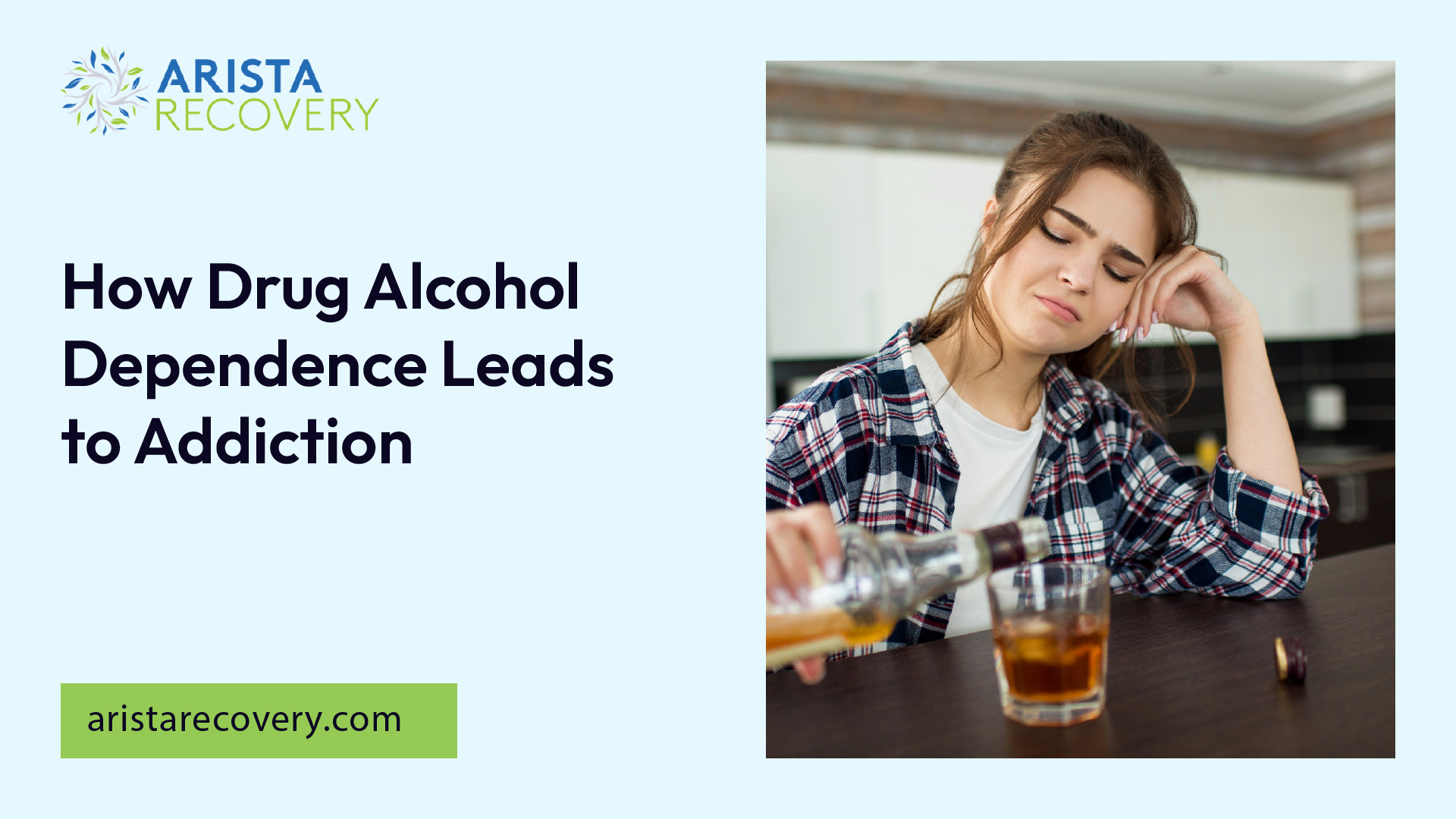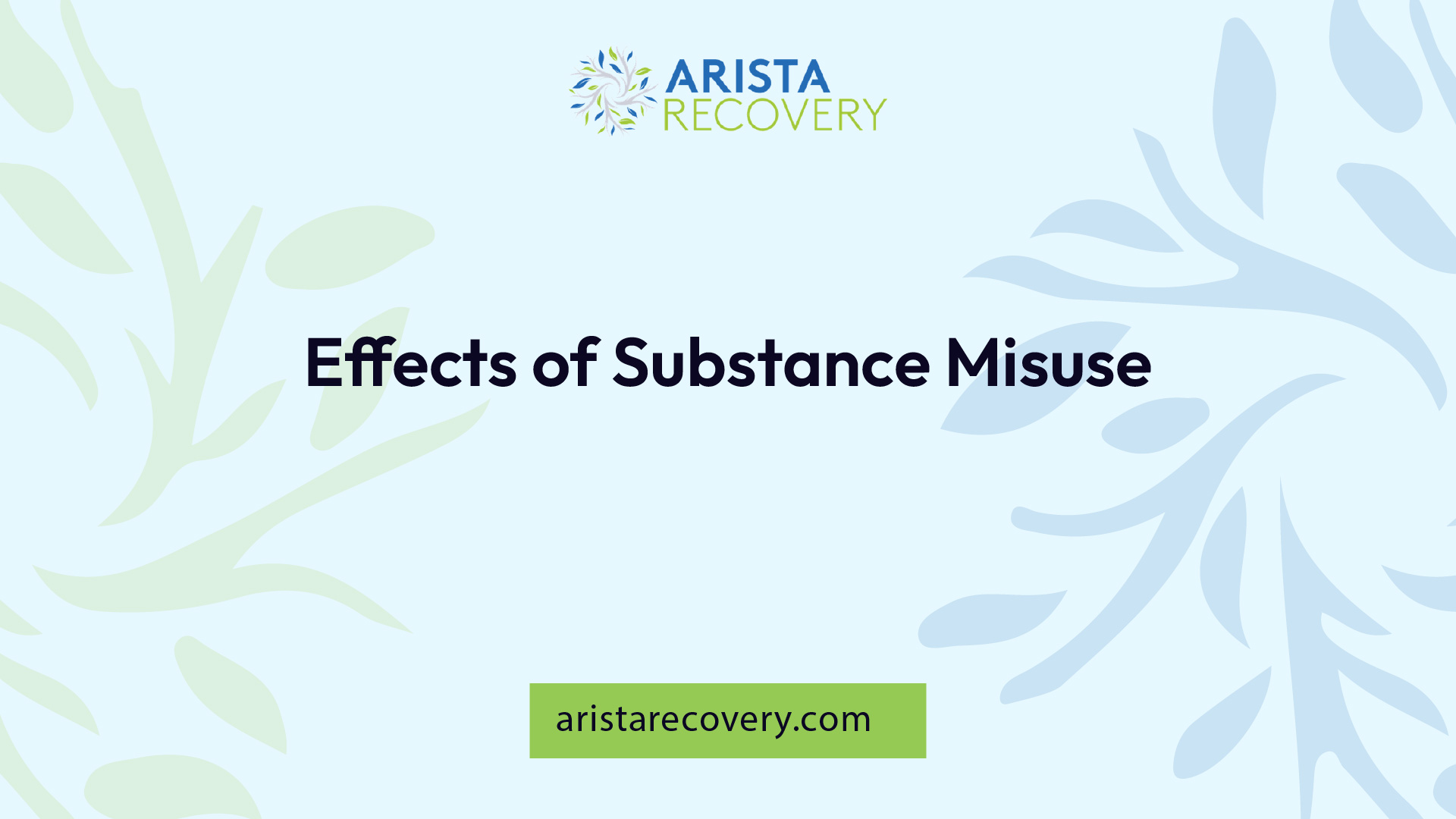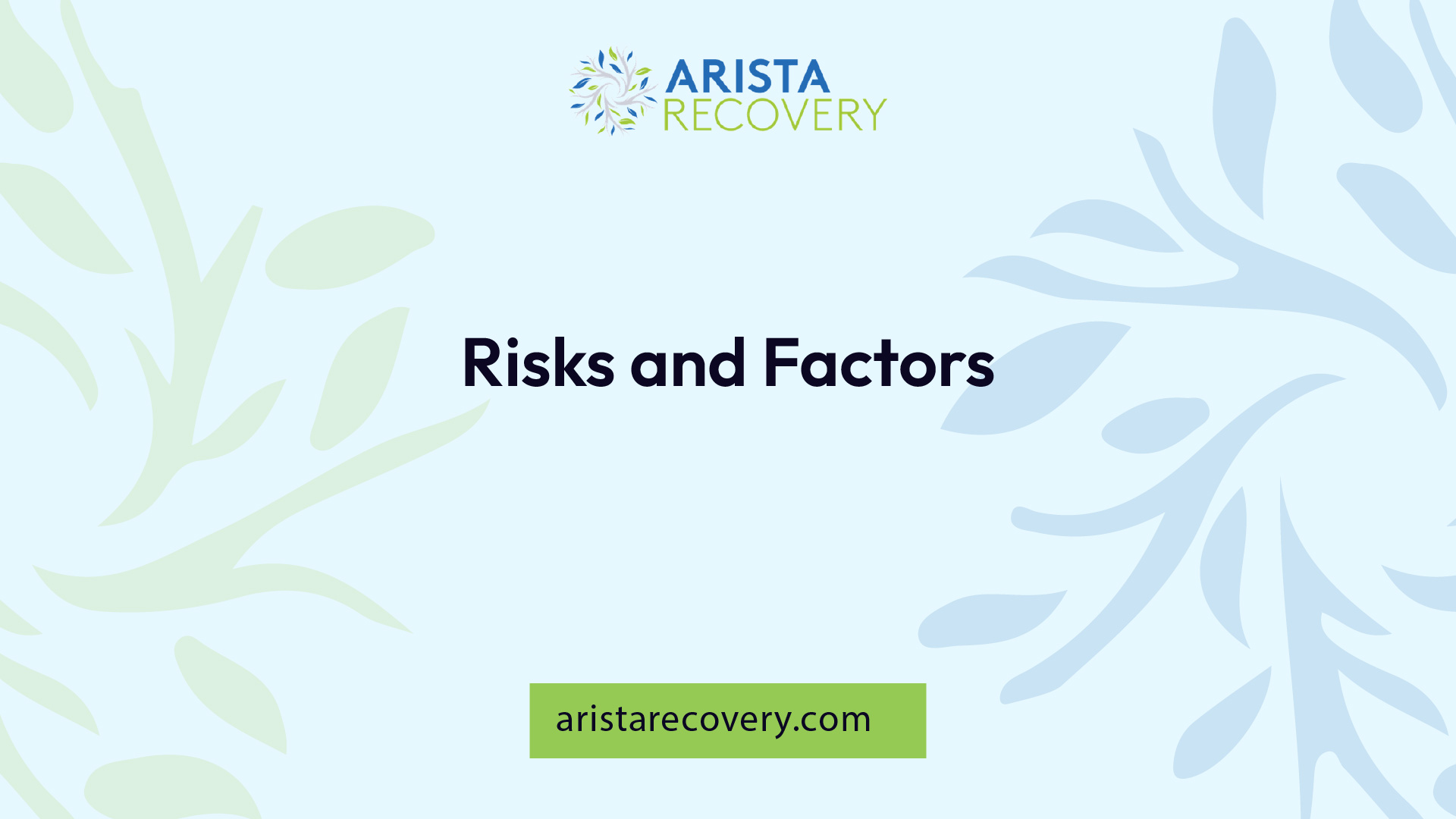How Drug Alcohol Dependence Leads to Addiction

Understanding Addiction
When discussing substance use and misuse, it's crucial to differentiate between dependence and addiction. Both terms, although related, address different aspects of the issue. Understanding these nuances can help those struggling with substance misuse and their loved ones better comprehend the challenges they face.

Differentiating Dependence and Addiction
Dependence refers to the physical symptoms of withdrawal and tolerance, while addiction is marked by a change in behavior caused by biochemical changes in the brain after continued substance abuse. Substance use becomes the main priority of the addict, regardless of the harm they may cause to themselves or others.
Physical dependence occurs when the body adapts to a substance's presence, leading to withdrawal symptoms if usage is abruptly stopped or reduced. Dependence does not necessarily involve difficulty controlling behavior, and a person may feel indifferent toward the drug they are taking.
Mental dependence, on the other hand, is when the use of a substance is a conditioned response to an event or feeling, known as "triggers," which strongly influence addictive behavior by setting off biochemical changes in the brain [1].
Recognizing the difference between addiction and substance dependence can help understand the nature of addiction better. While a dependence may be present without addiction, substance dependencies frequently lead to addiction. For more on the differences between dependence and addiction, visit our article on dependence vs. addiction.
Behavioral Changes in Addiction
Addiction involves changes in behavior and causes cravings, compulsive behavior, and changes in the brain. A person with an addiction has difficulty not using substances or doing rewarding activities, even if it is harming them.
Drug addiction, also called substance use disorder, is a disease that affects a person's brain and behavior and leads to an inability to control the use of a legal or illegal drug or medicine. Substances such as alcohol, marijuana, and nicotine are also considered drugs. When addicted, individuals may continue using the drug despite the harm it causes.
As time passes, individuals may need larger doses of the drug to get high, and eventually, they may need the drug just to feel good. Increased drug use can lead to difficulty in going without the drug, and attempts to stop may result in intense cravings and physical illness, known as withdrawal symptoms.
Understanding how drug alcohol dependence leads to addiction and recognizing the associated behavioral changes can be a vital step toward seeking help. Whether you're dealing with physiological dependence, considering ways on how to help son with drug dependence, or exploring options for treating opioid dependence, it's important to have a comprehensive understanding of these complex issues.
Effects of Substance Misuse
Substance misuse, particularly when it results in chronic drug alcohol dependence, can have a significant impact on an individual's health. This section will explore the effects on organ and systemic health, as well as the long-term effects of specific substances.

Organ and Systemic Impact
Chronic misuse of substances such as opioids is associated with several adverse effects on the organs and systems within the body. This includes effects on the brain, heart, liver, and other vital organs.
Long-term drug use, for instance, causes changes in brain chemical systems and circuits. This affects functions such as decision-making, judgment, memory, and behavior control, a key factor in understanding how drug alcohol dependence leads to addiction [5].
These impacts not only affect an individual's physical health but also their mental well-being, making individuals more unwell and more likely to harm themselves or take their own life.
Long-Term Effects of Specific Substances
The long-term effects of substance misuse can vary widely depending on the specific substance in question.
Methamphetamine, for example, can lead to severe dental problems, tooth decay, weight loss, and skin sores with prolonged use [4].
Chronic marijuana use may lead to a rare condition known as cannabinoid hyperemesis syndrome, which causes cyclic, severe nausea, vomiting, and dehydration.
Alcohol, when consumed in excess, can worsen the feelings associated with certain mental health issues. Very high levels of alcohol consumption can lead to psychosis, and it can also increase the risk of self-harm and suicide.
Amphetamines and methamphetamines, in the short-term, can induce feelings of alertness but may lead to drug-induced psychosis. In the long-term, these substances can cause anxiety, depression, and addiction.
Substance misuse and addiction are complex topics with wide-ranging impacts on various aspects of health. It's important for those struggling with dependence or looking for ways to help a loved one with drug dependence to understand these impacts and seek appropriate treatment.
Risks and Factors
Understanding the risk factors associated with addiction can be crucial in preventing the progression of drug alcohol dependence that leads to addiction. Concurrently, identifying protective factors and nurturing resilience can be pivotal in recovery and prevention.

Risk Factors for Addiction
Risk factors are characteristics that statistically occur more frequently in those who develop alcohol and other drug problems. It's important to note that these factors are not necessarily predictive for an individual but serve as indicators for potential substance abuse issues.
Risk factors for addiction include:
- Living in economically depressed areas
- Minority status involvement
- Family environment issues
- Constitutional vulnerability of the child
- Early behavior problems
- Negative adolescent behavior and experiences
These factors are related not only to the individual but also to the family and social/cultural characteristics. While identifying these risk factors is an essential step in understanding how drug alcohol dependence leads to addiction, it's also important to recognize that children growing up under adverse conditions can mature into healthy adults.
Protective Factors and Resilience
Recent research has started to shift attention towards factors that protect individuals from developing alcohol or other drug problems. Emphasizing the importance of identifying and addressing risk factors, the approach also highlights the need to foster resilience as part of a comprehensive strategy to prevent substance abuse issues.
Resilience refers to the ability to bounce back from adversity and maintain healthy development despite being exposed to risk factors. Fostering resilience can involve various strategies, including:
- Building strong relationships with positive role models
- Developing coping and problem-solving skills
- Encouraging participation in positive activities
- Providing opportunities for success in school and community
There are no simple solutions to assist individuals at high risk for developing alcohol or other drug problems. Reducing risk factors and fostering resilience are part of a comprehensive approach to prevention, aligning with a public health strategy to mitigate problems related to substance abuse.
Understanding these factors and how they contribute to the risk of developing an addiction can be valuable information for individuals battling addiction or helping a loved one with drug dependence. Remember, recovery is possible and understanding these risk and protective factors can be a significant step towards treating opioid dependence or any substance use disorder.
Seeking Help and Treatment
When drug alcohol dependence leads to addiction, seeking help is a crucial step towards recovery. Treatment involves a comprehensive approach addressing physical and psychological aspects, including the use of medications and therapy [2].
Comprehensive Approach to Treatment
A comprehensive approach to treatment takes into consideration all elements of an individual's addiction. This includes understanding the person's drug use patterns, their physical and mental health, and any co-occurring social problems that may be contributing to their addiction. Recognition of these challenges is a crucial part of tailoring treatment approaches to each patient's unique circumstances [5].
Treatment for dependence often involves medical supervision to safely taper off the drug over a set period, reducing the potential for severe withdrawal effects. This is especially relevant in cases of severe Alcohol Use Disorder (AUD), where withdrawal can be potentially life-threatening.
It's important to recognize the signs of drug addiction, as early intervention can significantly improve the chances of successful recovery. For more information on signs of drug addiction, visit our page on how to help son with drug dependence.
Medications and Therapies
Alongside the comprehensive approach, several medications and therapies have proven effective in treating addiction.
Three medications have been approved by the U.S. Food and Drug Administration to help people stop or reduce their drinking and prevent a return to drinking: naltrexone, acamprosate, and disulfiram [8].
Behavioral therapies also play a crucial role in treatment. These therapies aim to change the behaviors related to substance misuse and increase life skills to handle stressful circumstances and environmental cues that may trigger intense craving for drugs.
Research shows that combining addiction treatment medications with behavioral therapy ensures the best chance of success for most patients. For specific guidance on treating opioid dependence, check our page on treating opioid dependence.
It's important to remember that recovery from addiction is a long-term process, and individuals may need ongoing support to maintain their progress. Various resources and support services are available for individuals battling substance use disorders, including overdose prevention resources and quit smoking services.
Effective treatment for drug alcohol dependence that leads to addiction involves a comprehensive approach that considers the individual's unique circumstances. This includes the use of medications, behavioral therapies, and ongoing support to help individuals achieve and maintain recovery.
Substance Use Disorders
Substance use disorders, also known as drug addiction, are diseases that affect the brain and behavior, leading to an inability to control the use of legal or illegal drugs, including substances such as alcohol, marijuana, and nicotine. This section will focus on the behavioral patterns and mental well-being impact associated with substance use disorders.
Behavioral Patterns
Substance use disorders occur when an individual continues using a substance despite significant substance-related problems [10]. This could be alcohol, cocaine, prescription pain pills, or other drugs.
Common behavioral patterns associated with substance use disorders include:
- Consistent use of substances despite the harm it causes
- Putting substance use before family, relationships, and career
- Continued use of the substance even when it is no longer providing pleasure
- Excessive time spent on obtaining, using, or recovering from the substance
These behavioral patterns are a clear indication of how drug alcohol dependence leads to addiction. It's worth noting that drug addiction can start with experimental use of a recreational drug in social situations, and, for opioids, addiction can begin when individuals take prescribed medicines or receive them from others who have prescriptions [3].
Impact on Mental Well-being
Long-term use of alcohol or drugs can have serious implications for mental well-being. It can worsen feelings associated with certain mental health issues and increase the likelihood of self-harm and suicide.
Specific substances can also have different impacts on mental health. For instance, very high levels of alcohol consumption can lead to psychosis, and substances like cannabis have been shown to increase the chances of developing psychosis or a psychotic disorder. On the other hand, amphetamines and methamphetamines can induce feelings of alertness in the short term but may lead to drug-induced psychosis. In the long run, these substances can cause anxiety, depression, and addiction.
Long-term drug use also causes changes in brain chemical systems and circuits, affecting functions such as decision-making, judgment, memory, and behavior control.
Dependence on drugs can lead to dangerous and damaging complications, including physical and mental health issues, financial problems, and strained relationships. The importance of seeking help and understanding how to help someone with drug dependence cannot be overstated.
Statistics and Resources
Understanding the statistics and resources related to drug alcohol dependence and addiction can provide crucial context and support for those dealing with these issues. This section explores the prevalence of Alcohol Use Disorder (AUD) and the resources available for treatment and support.
Prevalence of Alcohol Use Disorder
According to the 2022 National Survey on Drug Use and Health, 28.8 million adults ages 18 and older (11.2% in this age group) had AUD in 2021. Among youth, an estimated 753,000 adolescents ages 12 to 17 (2.9% of this age group) had AUD during this time frame [8].
AUD is a medical condition characterized by an impaired ability to stop or control alcohol use despite adverse social, occupational, or health consequences. It encompasses the conditions that some people refer to as alcohol abuse, alcohol dependence, alcohol addiction, and the colloquial term, alcoholism.
Support Services and Resources
For those affected by AUD, there are several resources available that can provide support and treatment. Behavioral therapies, mutual-support groups, and medications like naltrexone, acamprosate, and disulfiram can help people with AUD achieve and maintain recovery [8]. It is important to understand the risks and benefits associated with these treatments, and to consult with a healthcare provider for individualized advice.
It should be noted that people with severe AUD may need medical help to avoid alcohol withdrawal if they decide to stop drinking. Alcohol withdrawal is a potentially life-threatening process that can occur when someone who has been drinking heavily for a prolonged period of time suddenly stops drinking.
There are also resources available for people who need help with substance use, including overdose prevention resources and quit smoking services, indicating a recognition of the challenges individuals face with substance use [9].
In addition to the general resources, specific support is provided for First Nation, Inuit, or Métis individuals in need of help with substance use, recognizing the importance of culturally sensitive resources in addressing addiction within these communities.
The link between substance use and mental health is emphasized, indicating the interconnected nature of substance use disorders and mental health struggles, and the availability of help for individuals facing these challenges. Additionally, resources for Canadians living with chronic pain who may be using substances for treatment underline the intersection between chronic pain management and substance use, indicating the need for specialized support and information for this group of individuals.
Knowing how drug alcohol dependence leads to addiction can play a crucial role in prevention and early intervention. By understanding the risks, effects, and treatment options, individuals and their loved ones can make informed decisions and seek help when needed. For more guidance on helping a family member with drug dependence, visit our article on how to help son with drug dependence.
References
[1]: https://www.addictioncenter.com/addiction/addiction-vs-dependence/
[2]: https://www.medicalnewstoday.com/articles/addiction-vs-dependence
[3]: https://www.mayoclinic.org/diseases-conditions/drug-addiction/symptoms-causes/syc-20365112
[4]: https://americanaddictioncenters.org/health-complications-addiction/permanent-effects
[5]: https://nida.nih.gov/publications/drugfacts/understanding-drug-use-addiction
[6]: https://www.rethink.org/advice-and-information/about-mental-illness/learn-more-about-conditions/drugs-alcohol-and-mental-health/
[7]: https://health.hawaii.gov/substance-abuse/prevention-treatment/prevention/risk-factors/
[8]: https://www.niaaa.nih.gov/publications/brochures-and-fact-sheets/understanding-alcohol-use-disorder
[9]: https://www.canada.ca/en/health-canada/services/substance-use/get-help-with-substance-use.html
[10]: https://www.aurorahealthcare.org/services/behavioral-health-addiction/substance-abuse/signs-symptoms
You’re not alone in this.
When mental health challenges and addiction intersect, it can feel isolating. At Arista, we offer compassionate, evidence-based, and trauma-informed care to help you heal, grow, and move forward.
You’re not alone in this.
When mental health challenges and addiction intersect, it can feel isolating. At Arista, we offer compassionate, evidence-based, and trauma-informed care to help you heal, grow, and move forward.
Support that moves with you.
You’ve taken a brave first step. At Arista Recovery, we’re here to help you continue with best-in-class care designed for long-term healing and support.
.webp)






